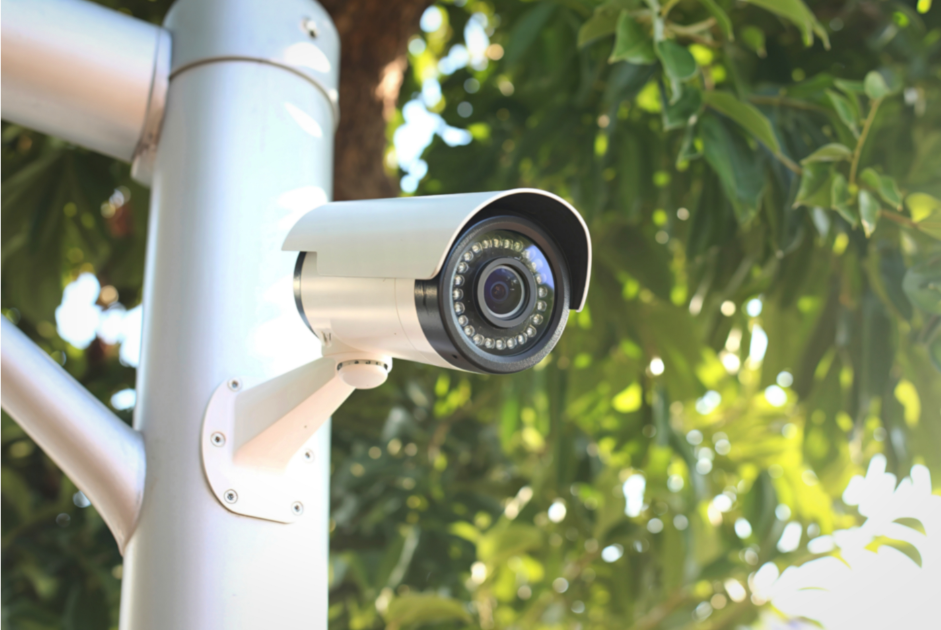People from other countries share 14 things that instantly tell them someone's American
Have you ever heard of the "American lean"?

Americans have a style and personality all their own, which isn’t a bad thing. It’s just noticeable when they travel aboard. Americans often stand out because of their outgoing personalities. They are friendly and enjoy having casual conversations with strangers.
This is an endearing trait to a lot of people in more reserved cultures, although it can also come off as a little brash.
An American characteristic that isn’t quite endearing to people in other countries is that they can be rather loud. In Europe, one can always notice the Americans in the restaurant because they can be heard from across the room.
One Reddit user wanted to know the specific ways that Americans stand out when traveling abroad, so they asked the AskReddit subreddit: “What’s an obvious sign that someone is an American?”

The post was popular, receiving nearly 6,000 responses in just 6 days. The most popular ones described how Americans' unique personalities, style of dress, dental hygiene and body language make them easy to spot.
Here are 14 “obvious” signs that someone is an American.
1. Posture

"Apparently, the CIA trains American agents to not lean on things if they go undercover in foreign countries because Americans lean on anything they can while standing around," one user wrote.
"I bet MI6 trains British agents to lean on everything if they go undercover in America because Americans lean on anything they can while standing around," joked another.
Shockingly, this is actually true. The "American lean" is well-documented and, yes, a former CIA chief has said publicly that it's something the agency addresses with its operatives to help them blend in.
2. The date
"MMDDYYYY," a user said.
The way Americans write the date seems normal and commonplace when you're in the US, but around the world, we're practically the only ones who do it that way. Similarly, only a small handful of countries outside of the US use the imperial system of measure.
Writing the date or using feet and inches are a dead giveaway!
3. Distances are different
"Anything under 4 hours is 'close by," someone suggested.
"Everything in Europe is around the corner if you're from the US. I can drive the whole day and not leave my state, but in Europe, I can pass through 4 countries in that same time frame," said another.
The massive geography of the United States has a big affect on how we see distance. It shows up when we travel to other countries that are more densely packed together.
4. They're polite to servers
"In the touristy cafe-restaurant I worked at:
If they asked me for the nicest spot we had
If they asked me my recommendation without seeing the menu first
I would walk to the table, and they would say right away ‘hey, how are you doing?’ This one threw me off a lot at first. Why is this person asking me how I'm doing?? I'm just there to take the order. I got used to it, and I think they found my awkwardness cute.
They would ask my name when I greeted them and took their order.
I'm Northern European.," explained one user.
"It’s under-appreciated just how polite, friendly, and sincere Americans are in general. It blew my mind the first time I came to the US, and I love that my children are growing up with those same values," said another.
You might expect to hear that Americans are rude and entitled when traveling, but that's not necessarily the case! In America, some friendly rapport with your waiter is expected, and Americans tend to be a more outgoing bunch that love to engage. That makes them stand out in European countries, in particular, where restaurant service is meant to be professional and efficient rather than charismatic.
5. The water bottles

"I was told, 'Americans carry water bottles around like they're worried they'll never have access to clean water ever again," one user said.
"I don't care what anyone says. If you think carrying a water bottle when walking a lot is weird, you're probably slightly dehydrated all the time and are just desensitized to it. You seriously need to drink water frequently if you want to be ideally healthy," said another.
The water bottle fad is uniquely American, for better or worse. Whether it's a Yeti, a Stanley, an Owalla, or something else, you can bet if someone is swinging a massive water bottle wherever they walk, they're an American.
6. Smiling
"I was in Germany this past summer, and I realized smiling at everyone you make eye contact with is very American. When I went to London on the same trip, they seemed less weirded out by it but would awkwardly return the smile. I was taught to always start with a disarming smile. Never realized it was American," said one person.
7. "More ice, please."

"I spent a year in Europe completely iceless to the point I forgot that was a thing. I stopped at a bar in Chicago fresh off the plane and not only did I get free tap water, but water with ice. I instantly felt at home," added one person.
There is a long and fascinating history involving someone called "The Ice King" behind why Americans, and so few other cultures, love to put tons of ice in our drinks. Needless to say, it makes us stand out like a sore thumb when traveling.
8. Personal space
"As an American man, I’ve been told repeatedly by European and Asian friends that we simply take up space (not by being fat) as though we’re entitled to it. Men in other countries apparently don’t claim the same personal space we do," one person offered.
You mean manspreading? Apparently, other cultures don't do that.
9. White teeth

"It’s even more bizarre that they assume we have braces or bleach our teeth because they’re straight and white. I have naturally straight white teeth. I brush them twice a day so they stay white. I don’t do anything special to them, but I remember being in London and some similar-aged students literally making fun of me for my teeth… it’s true that they don’t naturally look like headstones in an ancient graveyard, but there’s no need to make fun," someone added.
Imagine getting made fun of for having white teeth! For one reason or another, American culture places high value on having extremely white teeth. We all know the old jokes about British teeth, but some findings show that while Americans' teeth may be whiter, Brits may be healthier overall. Something to think about.
10. Casual dress
"My friend went to Germany recently, and what people said about Americans is you can spot them a mile away because they’re the ones wearing pajamas in public. Apparently, in other countries, at least Germany, they dress a little more formally and in less baggy clothes than we do in America," someone added.
Activewear, sweatpants, pajamas — we love to be comfortable! But it does make us a bit obvious when we're out and about in other countries.
11. Baseball hats

"Baseball cap... even on an infant riding in a pram," a user suggested.
Baseball hats are common in many countries around the world, but most people internationally only wear them outside. If someone's wearing a cap inside or at a restaurant, it's a safe bet that person is American.
12. Shoes
"Americans are shoe snobs (they don’t think they are, but they are). Setting aside wealthier business types, Americans generally wear more on-brand, on-trend, high-quality shoes than others," someone said.
13. They're loud

"That was my first thought. Americans yell at each other in normal conversation in public. I noticed it years ago in Europe, and now I can’t stand it in the US," another user added.
Now there's an unsurprising revelation! Just like our tendency to take up space, Americans seem to have less awareness of those around them when it comes to conversation volume, as well.
14. Occupation matters
"Immediately asking someone what they do for a living when meeting them. Our jobs and work are our entire identity," one person said.
"I hate that about American culture. I'm an American and recently became a SAHM, so I don't have an answer to 'What do you do for a living?' Half the time, I add the caveat, ‘Oh, my last job was with Apple,’ so that I'm not written off as an unemployed ‘loser.’ But it really is dumb to determine a person's worth by what they do in order to afford food and shelter," added another.
There are huge differences in work culture between America and other countries. They're so big and pervasive that they show up not just while we're working, but in the way we interact with others. For example, in Europe it's far less common to be friends with your coworkers. People value the purpose they find in work and the results, but are happy to keep the majority of their life separate from their career.
This article originally appeared last year. It has been updated.
- British man in U.S. explains why Americans aren’t 'well-traveled’ and it’s so true ›
- People share 'very American problems' that many Americans don't realize are unique to the U.S. ›
- Brits share the most 'bizarre' things Americans do that seem unbelievable across the pond ›
- 'Very American' things people didn't realize til they left the US - Upworthy ›



 A UPS truck with package deliveries.Image via Wikipedia
A UPS truck with package deliveries.Image via Wikipedia
 Lists made on a phone are fast, efficient, fluid, and easy to share with others in your household. Photo by
Lists made on a phone are fast, efficient, fluid, and easy to share with others in your household. Photo by 

 A woman ejoying a realxing bath.
A woman ejoying a realxing bath. A man getting a massage.
A man getting a massage.
 Desperate times...
Desperate times... A heap of tires in a field.
A heap of tires in a field.